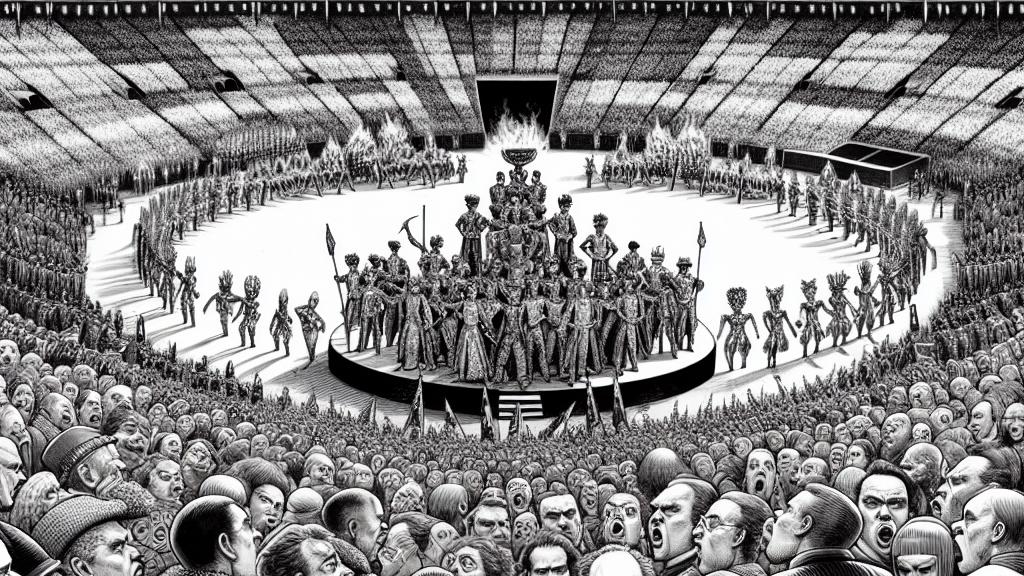Papal Outrage: Olympic Opening Ceremony Sparks Controversy!
Overview
- Papal statement critiques controversial elements of the Paris Olympic ceremony.
- Performance evokes parallels to Da Vinci's 'The Last Supper', inciting criticism.
- Artistic director clarifies intent, denies mocking religious sentiment.

Background of the Controversy
The grand opening ceremony of the Paris 2024 Olympics, which took place in France, has ignited a firestorm of controversy. The event featured an array of performances, including dancers in drag who were criticized for mirroring the famous composition of 'The Last Supper' by Leonardo da Vinci. This resemblance triggered outrage, particularly from the Roman Catholic Church, which perceived the performance as an affront to Christian beliefs. In response, the Vatican issued an unusually stern statement denouncing any form of artistic expression that undermines religious respect, emphasizing that such acts cannot be tolerated at a global event designed to unite diverse cultures.
Vatican's Official Statement and Implications
In an official statement, the Vatican made it clear that mocking religious beliefs through art is unacceptable, especially at significant international gatherings like the Olympics. The declaration expressed solidarity with offended Christians, voicing regret over how the performance might diminish the sacredness of their faith. This assertion underscored a broader message: while artistic freedom is invaluable, it must align with the principles of respect and dignity. As the Olympics symbolize a convergence of various cultures, respecting different beliefs is paramount to fostering inclusivity in this worldwide celebration of human achievement.
Artistic Director's Defense and Repercussions
Amidst the mounting criticism, Thomas Jolly, the artistic director of the ceremony, defended his creative vision, asserting that there was no intention to evoke 'The Last Supper' in a disrespectful manner. He aimed instead to promote themes of diversity, kindness, and acceptance through the performance. However, the backlash escalated, leading Jolly to receive concerning online threats, prompting an investigation into these threats. This incident highlights the volatile intersection of artistic expression and sensitive cultural narratives, revealing how modern artists must navigate the complexities of diverse audiences while striving for creative authenticity.

Loading...